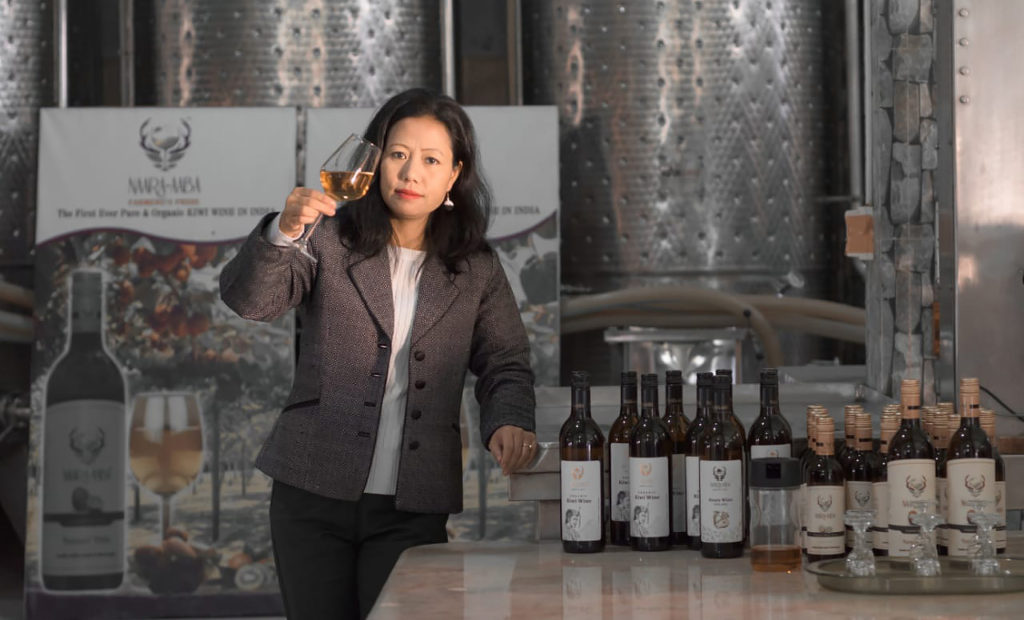
Deep inside Arunachal Pradesh, a sleepy village called Hong in Ziro Valley (five hours off Itanagar), will never be the same again. Ever since Naara Aaba, the first-ever winery in the mountainous state came up in this village, life too has changed for the 181 families as they must now get used to the constant chatter and noise of the world outside. Truckloads of fruits – kiwis and now, plums, pears, peaches in sacks are moving up and down almost all through the day. On good days, tourists from all over the world queue up to get a taste of the wine. Other times, it’s curious students who make a beeline during their internship. Naara Aaba is clearly now on every traveller’s itinerary. And Tage Rita must all attend to all that and more.
So, there’s nothing that Rita likes more than putting her feet up after a hard day’s work to sip on a glass of cold kiwi wine. It’s her way of patting herself on back for a job well done: for it has been a long and arduous journey for Arunachal Pradesh’s proud daughter to become first organic kiwi wine brewer.
When Rita gave up a government job as an agricultural engineer to set up her wine brewery, there was shock and anger all around. She became the laughing stock of her community. After all, no one gives up a hard-to-get stable job to set up a business that is fraught with risks. But she had always been a bit of a rebel – restless and adventurous and constantly in trouble with her parents. She was ‘fearless Rita’ – unafraid to tread where no other person, especially a woman, would.
So, when she took the plunge and set up her wine production plant, Rita knew exactly what she was doing. Kiwis grow wild in her native Ziro Valley. She had grown up eating it, peeling away its fuzzy skin and relishing its sweet, tart and juicy green flesh. And when in 2000 it was introduced as a commercial fruit and its large-scale production ensured; Rita knew she had to work her magic on it. It was an idea that stayed with her as she reluctantly studied for her BTech in Agricultural Engineering at the behest of an insistent aunt and later juggled work at home and office. So determined was she, it was almost as if the kiwi and the soil that nurtured it, was her identity. And in many ways, it was. Growing up, she had seen her father working his land and his fish ponds. She would watch in fascination as he gardened on moonlit summer nights. The earth was so giving, she thought, and she too wanted to work with it as closely and as creatively as possible. A winery that involved the community in Ziro Valley and its abundant organic produce (the Arunachal kiwi is the only certified organic fruit of its kind in the country) seemed to be the most natural and wholesome choice. And so, she became a wine entrepreneur.
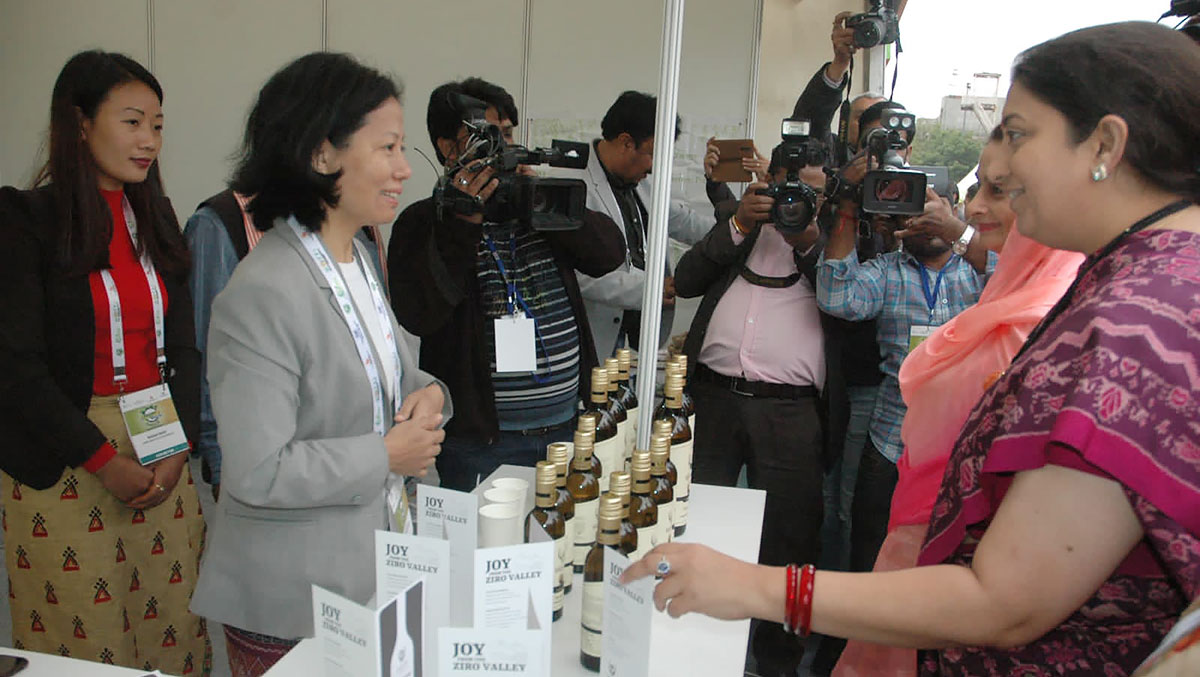
After six years of research and planning, with multiple tasting tests, Rita finally managed to set up Naara-Aaba, her winery, with a batch capacity of 40,000 litres in the basement of her home. “I have a location advantage,” she says with a laugh. It’s how she manages to take care of her four children and to carefully oversee the four-month-long process of crushing, fermenting and finally bottling the mildly acidic, delightfully sweet wine.
But it’s a hard grind for Rita, whose day starts at 9 am and ends late in the evening. Sometimes, she’s so tired, she grabs a quick nap while the crushing machines run full throttle. It is difficult to find a balance between the children, home and the winery, she says. But it’s the creativity of the entire process and the thought that she’s contributing towards shining the light on her home state that drives her. That and the tremendous support and inspiration she gets from her family. As a child, she had seen her entrepreneur mother run a small traditional weaving unit. That too was hard work, but Rita could see it brought her immense satisfaction. So, when she set up her winery, Rita knew she would have her family behind her. And that included her father-in-law, lovingly called Naara Aaba by his grandchildren and great-grandchildren and after whom she has named her winery.
In this wide-ranging interview with The NorthEast Stories, Rita speaks of the difficulties of being a woman wine entrepreneur in Arunachal Pradesh, the tremendous pride she has in her father-in-law who worked hard to educate his five girls to make them the empowered women they are today and the deep sense of satisfaction she felt when visitors at the Shanghai Expo made a beeline for her wine. And how she has introduced other fruits like plum, pears, wild apples. One day, Rita hopes that India will give her organic fruit wine the chance it deserves. I don’t believe in magic, but I do have big dreams, she says.
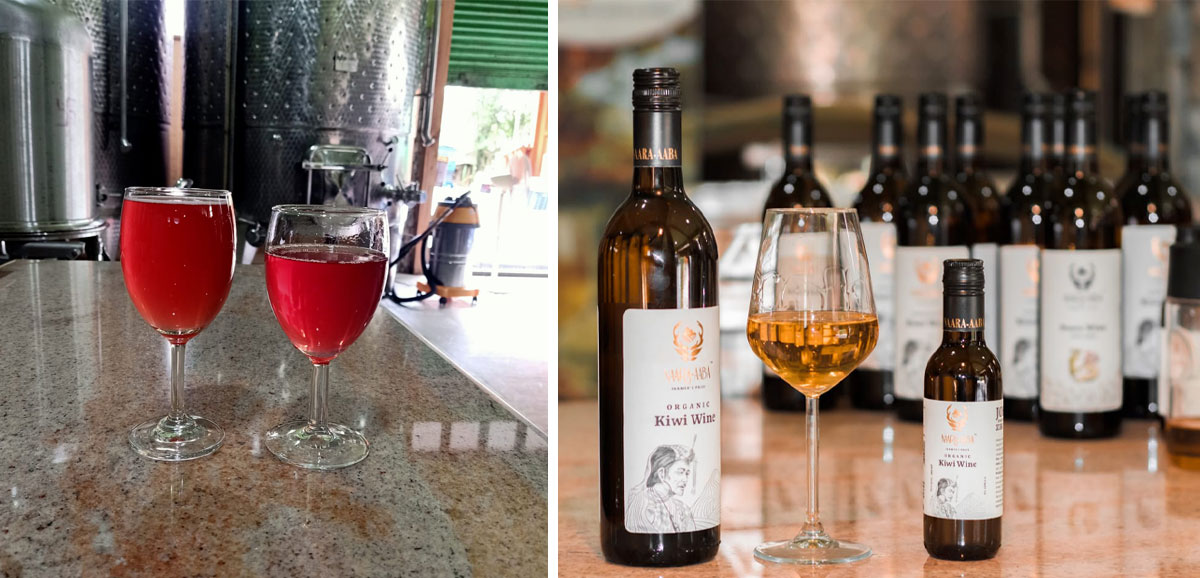
You left a comfortable government job to start up Naara-Aaba. Was your family supportive of this move?
My relatives and friends were shocked. I became the laughing stock. Mocking faces still greet me on a daily basis. I cannot express enough how people reacted to my decision. But my father, sister and brother did not oppose me. They were silent, very silent; especially my father who struggled so much to give me a good education. He always allowed me to make my own choices. Many people suggested I do both – work in the government and produce wine. I said it's not legal, neither am I capable of doing so many things together.
What do you think about the regional attitude towards entrepreneurship?
Entrepreneurship is unthinkable in our place or the Northeast region itself. A government job is what everybody wants. There is so much parental pressure on children that young unemployed youth sell off their lands and even borrow huge amounts of money to “buy” the smallest job in government departments. I feel this is disastrous for our society. But at the same time entrepreneurship too is difficult because there is red tape, bribery and corruption in offices which makes it impossible for first generation entrepreneurs to sustain their businesses. But there are many examples of youths in Arunachal Pradesh who are broad minded, educated and confident about what they are capable of doing. We have many in the corporate world, private ventures etc. We need to appreciate them and reward them.
Visitors at the Shanghai Expo are said to have preferred your kiwi wine to their local white wine, or baijiu, the drink of choice at most functions in China. Where does Naara-Aaba stand locally? Do you think the residents of the North-eastern states prefer organic homegrown wine to other alcoholic beverages from outside?
It was interesting and unexpected to see people in Shanghai liking our wine so much. I got many emails asking for our wine. The Northeast, in terms of agro climatic conditions, is best suited for the production of exotic fruits but their production at a commercial and industrial scale should be encouraged by giving farmers support in terms of market linkages. This is the only drawback we have in the region. Stop all the foreign imports at any cost. Buy from the farmers directly and source it to market.
The other way is to convert the fresh fruits into delicious wines. Fruits of the Northeast are organic by default. I call it beyond organic but its certification would authenticate its value. So, making organic wines out of certified organic fruits is the way forward. Locally we are a well-accepted brand for its quality and taste. I am happy but not yet accomplished enough because we are yet to convince many people about our wine. The gap between foreign and local brands is still glaring even in small towns. Indians want foreign wines only.
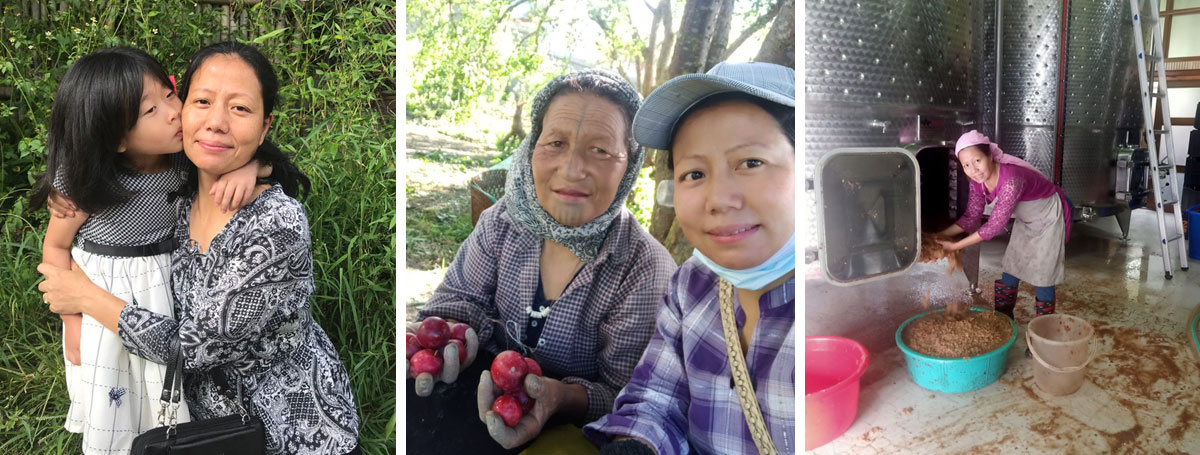
If you had three wishes to make for your brand of kiwi wine, what would they be?
I don't believe in magic but I have big dreams!
- I truly wish my wine reaches up to Delhi this year.
- That it finds its way to the beverage menus of good hotels and restaurants and people enjoy it.
- That I am able to export the wine in the near future.
I haven’t been able to find distributors for my wine over the last four years. There are syndicates everywhere and perhaps no one believes that I have such a high volume of wine. I want to make my wine available in all the metro cities of India and explore export opportunities also.
Our wine was gifted to the President of India during his visit in 2017-18 and someday I wish the same happens when our leaders visit foreign countries also.
What does "Naara-Aaba" mean? What is the story behind this name and how does it relate to your product?
Naara is the name of a place and Aaba means father. So, it's the father of a place and it is meant for my father-in-law, who was lovingly called as Naara Aaba by his grandchildren and great grandchildren. My father-in-law was a humble illiterate villager but he supported and paved the way for all her five daughters to acquire an education and live empowered lives. He believed his daughters were as capable as his son. I take pride in his righteous and fearless mind.
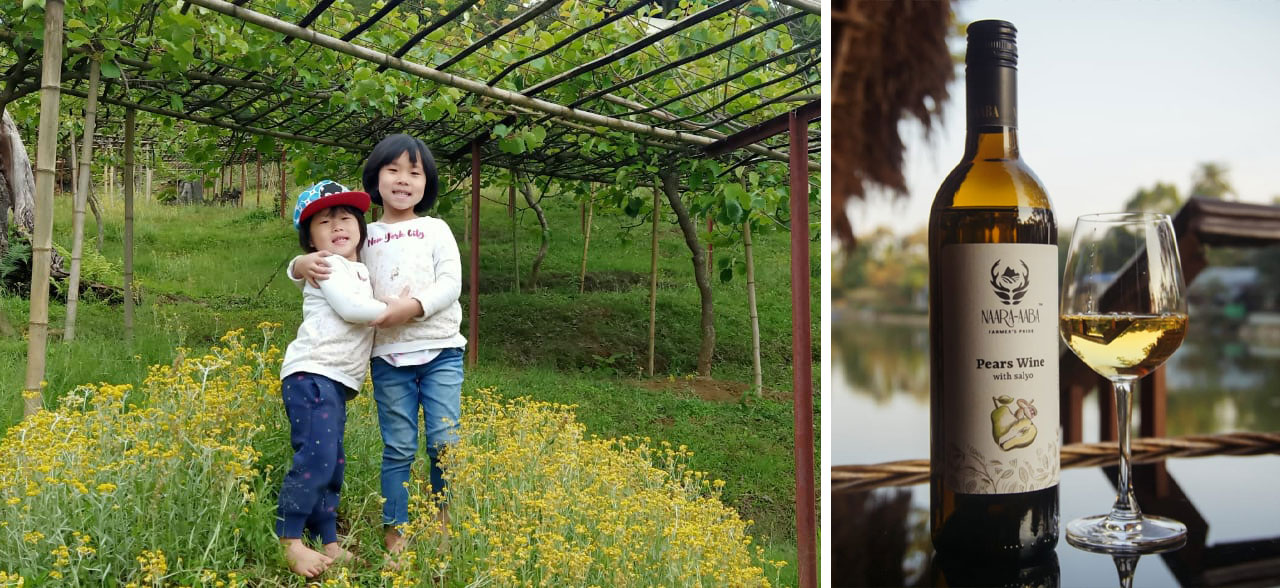
Arunachal Pradesh produces about 50 per cent of all the kiwi grown in India. Surely, some regions of the state can be lifted to the status enjoyed by Nashik (considered India’s wine capital)?
Yes, the concept of wine tourism like in Nashik or the California, Napa Valley can be brought into Arunachal Pradesh and it would be more empowering for the community. We register around 10 to 15 tourists every day in our winery, especially foreign tourists who are so excited to taste the wine and even visit kiwi gardens nearby. But government support, incentives and facilities for farmers and entrepreneurs are some of the important things our state will need in the coming years. Also, a lot of hard work, dedication and consistency by people will finally help in making wine tourism a reality.
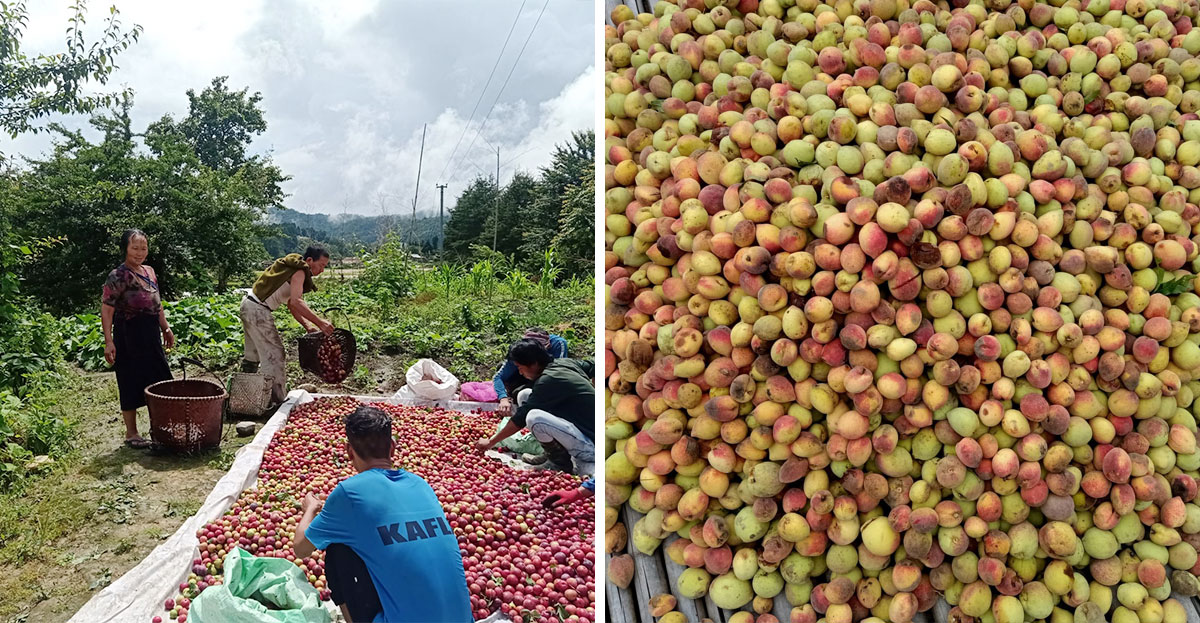
There is also nepotism and favouritism starting from government offices to distribution markets in Arunachal Pradesh…
All the alcohol-based, especially hard liquor, manufacturing, bottling and distribution license holders are either present sitting ministers, MLAs or some highly influential people. The situation is like “Raja hi byapaar ban gaya hai" (The ruler himself has become the trader). They frame policies and rules for themselves.
Apart from Kiwi, you have experimented with other seasonal fruits that are equally good for making wine. Tell us more.
We have started venturing into making wine out of other fruits in the state because there is so much access and the best way to preserve them is to use them for wine. It’s been two years since I have started making wine out of plum, pears, peach and wild apple. And I have been sourcing them from a neighbouring village where I get regular supply. For instance, a village youth would come with sacks full of pears; while village women would gather the local produce of peach, wild apples and ensure my supply never runs dry. These fruits are available in equal quantities as kiwi and it has been a good response so far. The process and method vary slightly but nonetheless they are just as good as kiwi wine.

